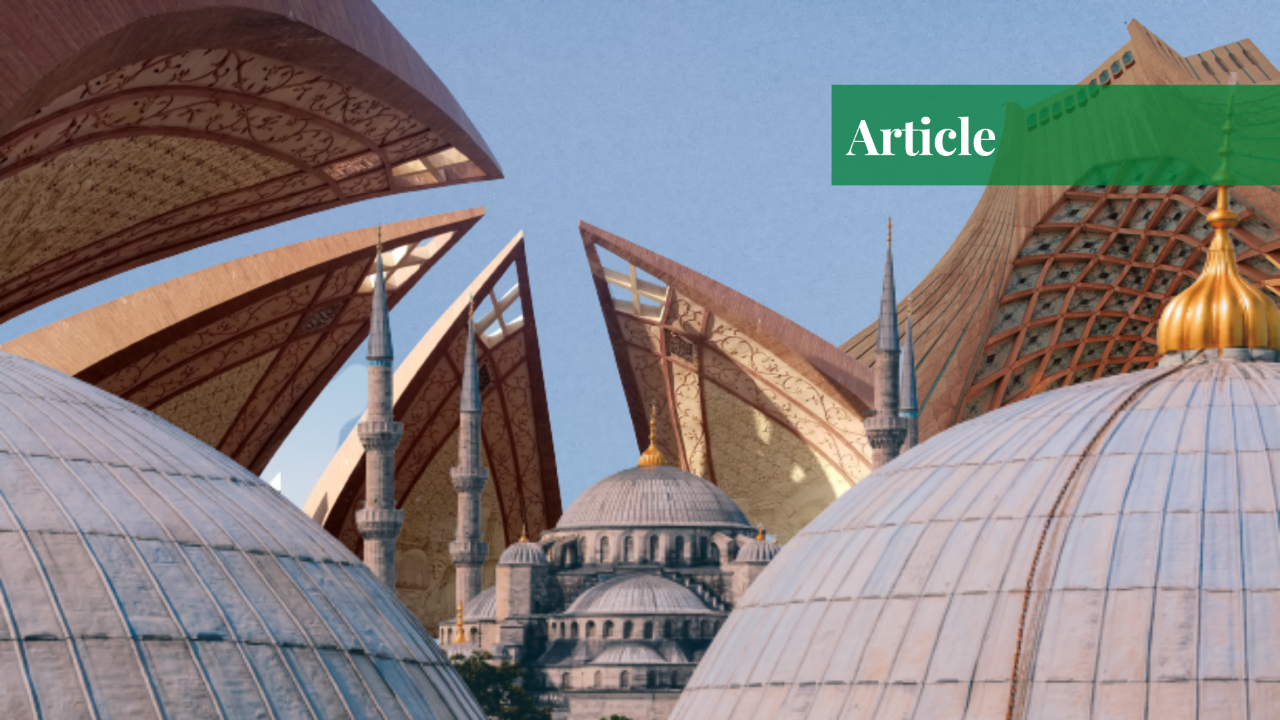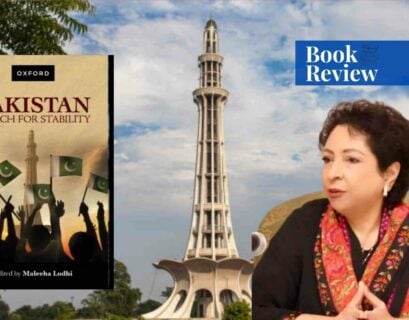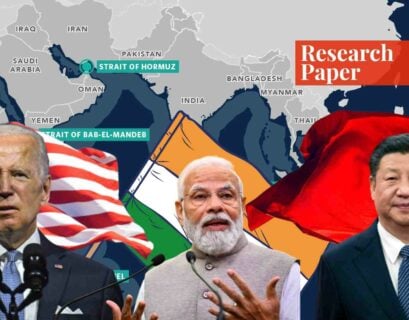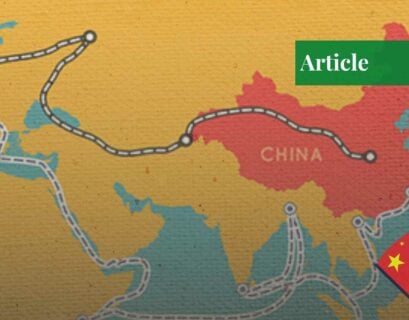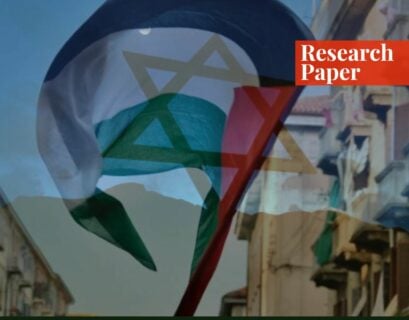Ms. Alina Fayaz is currently pursuing a Bachelor's in International Relations from National Defence University, Islamabad.
Introduction
The Islamabad-Tehran-Istanbul (ITI) road transport corridor, a game-changer mega project, has revived its services in the year 2021. In 2009, the Economic Co-operation Organization (ECO), an Asian economic and political intergovernmental organization, launched the ITI corridor which not only connected the three countries via road but also through railroads.
Various test journeys were done yet it has not turned into a steady regular service from that point forward and so services were suspended in 2011. Last year, rumors about the re-operation of services circulated but none of them turned into reality.
However, recently at the beginning of this year, the three regional stakeholders held discussions to initiate the service – what they have waited for long. The largest constituent of the China-Pakistan Economic Corridor (CPEC), the ML-1 railway line is aimed to link China’s Belt and Road Initiative (BRI) with the ITI corridor by Pakistan.
ML-1 and the ITI Road Transport Corridor
The weak part of the equation, Pakistan, is posing a challenge to get the trains back on track. The unfinished ML-1 rail route passes through the province of Balochistan and the region cannot handle trains same as in Iran and Turkey. The railway tracks in the region are centuries old and are covered by dunes in most of its parts.
The completion of ML-1 is very crucial for the re-opening of railway tracks as BRI and ITI converge to this point. China has a geopolitical interest in the corridor but is not willing to bear the expenses for the work’s conclusion on its closing portion. According to China, all three countries will benefit from the resumption of these services and demands Pakistan to re-construct ML-1 from external funds.
The re-opening is not simple, as from the Chinese perspective if Pakistan fails to get external aid then Turkey, Iran, and China should contribute to the completion of this project. Some analysts consider ITI railroads as an extension of BRI and believe that for China this Iranian transport infrastructure to be a part of BRI. An analyst, Lukasz Przybyszewsk said that: “In times of crisis and war, such alternative land trade routes are very valuable and profitable.”
China’s Interest
China’s interest in the Islamabad-Tehran-Istanbul road transport corridor has been re-sparked with the increasing development of railways in Iran and Turkey and China could view ITI as an alternative route of the New Silk Road. For China, this transnational corridor will be beneficial due to its quick travel times.
This track will aid Beijing to establish its relations with Ankara as the ITI road transport corridor will be the first regular and stable rail service between the two capitals. China views Turkey as a key Eurasian transportation hub. Moreover, Turkey is willing to fill the void and develop numerous routes that connect China with Turkey.
Turkey will play its role as the regional player that will lead the geopolitical space in the region by linking the European Union with China. The free trade agreement between Pakistan and China provides third parties to export goods with China without any custom taxes. This appears to be an opportunity for other states and will, in turn, strengthen regional integrity.
Transporting Goods Via the ITI Road Trasport Corridor
The General Manager of the National Logistic Cell (NLC), Shoaib Khakwani, in an interview told that the ITI-road corridor will be revived by the first commercial run from Pakistan to Turkey at the end of September. According to him, goods are packed and sealed to ensure the safe traveling of these high-value goods and contain a number of products including raw materials, textile-related machinery, household items, furniture, carpets, plastics, and other food items.
NLC had been granted the Transports Internationaux Routiers (TIR) license for regional transport operations and connectivity which will ensure transportation of cargo without any procedural hiccups. With this passageway, the textile goods that earlier took about a month to reach their destination will now be fast-forwarded to ten days only and will thus benefit the exporters.
As per the general manager, Pakistan can play a crucial role to fulfil the huge textile raw material requirement, including yarn and denim, of Turkey and this route will further aid in doing so. He further added: “We (The NLC), following the government’s vision of establishing regional connectivity, want to contribute in increasing the regional trade to strengthen Pakistan’s economic stability, as the TIR status we have achieved is the key for the growth of the local industry.”
The land cargo transport is supposed to be initiated by the transportation of goods to Istanbul from Islamabad via the Islamabad-Tehran-Istanbul road transport corridor. The Turkish ambassador in Pakistan, Ihsan Mustafa Yurdakul, expressed this hope that a $4 Billion increment could take place in a short period of a few years if bilateral relations were strengthened and the right sectors and industries were targeted.
President Federation of Pakistan Chambers of Commerce & Industry (FPCCI), Mr. Mian Nasser Hyatt Maggo, while speaking at the fourth meeting of Pakistan-Turkey Joint Chambers of Commerce & Industry Forum said: “The road transportation was one of the major impediments in bilateral trade; and, now significant time will be saved.”
Rouhollah Latifi, while talking about the ITI corridor’s potential, said that the transportation cost would be reduced by 30% and further added that “ECO’s ITI transportation corridor holds huge potential; for one thing transportation time between Istanbul and Pakistan is reduced to 10-12 days from the 25-30 days [through the Suez Canal].”
In the wake of COVID-19, the transportation costs have increased dramatically and it’s high time to use such transit corridors which are more cost-effective and a reliable way for cross-border movements of goods.
Conclusion
The revival of the ITI-corridor will strengthen the trilateral relations and the geopolitical game will become stronger. The recent trade transitions are green signals that show prosperity and a good future. China’s interest in the establishment of such railroads and the current condition of the pandemic will further promote such initiatives.
It’s high time to use such routes which save both time and money. The willingness and mutual benefit of Pakistan, Iran and Turkey will keep the running of the corridor smooth and stable.
If you want to submit your articles and/or research papers, please check the Submissions page.
The views and opinions expressed in this article/paper are the author’s own and do not necessarily reflect the editorial position of Paradigm Shift.
